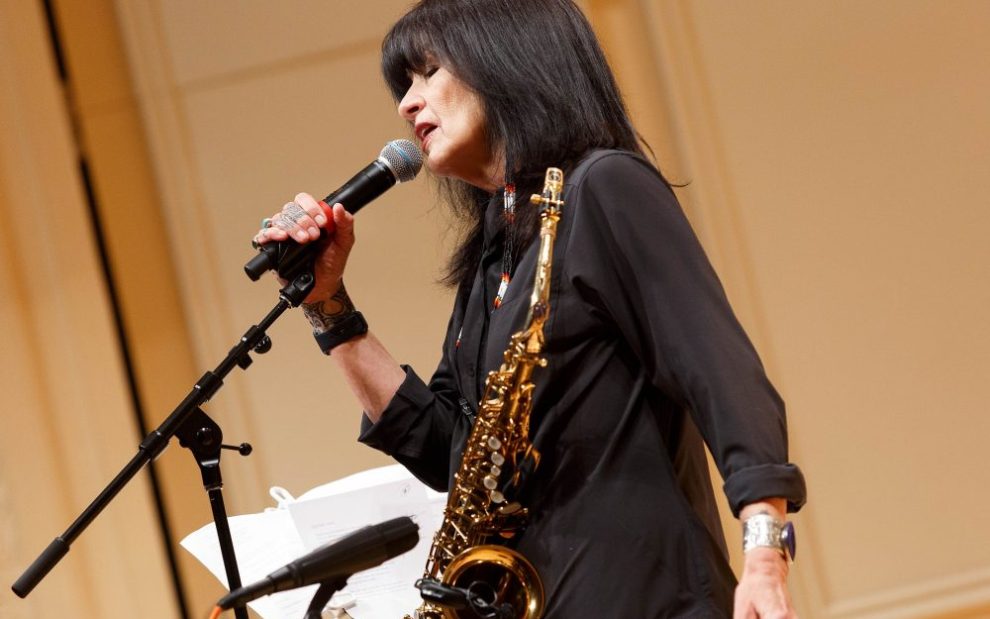I Pray for My Enemies
Joy Harjo (Joy Harjo, 2021)
In tumultuous times, to whom do we go for wisdom? In many cultures, poets, elders, and religious figures are sought out in difficult times. Deeply rooted in the values, history, and spirituality of the Native American experience, especially her own Muscogee Creek Nation, U.S. Poet Laureate Joy Harjo has brought her voice as an author, advocate, and poet into dialogue with the complexities of the contemporary world in an effort to bring justice and healing and offer beauty. These efforts are further enriched by her exceptional new album I Pray for My Enemies.
A saxophone and flute player, Harjo has often brought a musicality to her poetry. In I Pray for My Enemies, however, original songs and familiar poems from her impressive oeuvre have been reenvisioned as a type of performance art, weaving poetry recital, traditional Native American song, jazz, blues, and guitar feedback into a rich tapestry. The results are inspired. Her poem “Running,” now set to a groovy backbeat, hits the closing line with a charge. “I was anything but history. I was the wind,” she says as she immediately blows a note through her flute, her breath turning from word into the wind itself. Elsewhere the exceptional song “Earth House” tells the story of her relationship with a beloved elder who gave her the gift of a drum. It recounts a trip through the Sandia Mountains to collect cedar. The song ends with Harjo playing this drum as a poignant tribute.
But it’s still Harjo’s words that we cling to. Whether she is challenging a history of oppression, lifting up our connectedness to the Earth, sharing words of her grandfather about love and family, observing the complexity of Christianity’s impact upon Native people, or praying for her enemies, she is filled with spiritual insights. Listen to her like an elder is speaking. Quiet yourself and open to her wisdom. It is much needed.
This article also appears in the April 2022 issue of U.S. Catholic (Vol. 87, No. 4, page 39). Click here to subscribe to the magazine.
Image: Shawn Miller/Library of Congress















Add comment